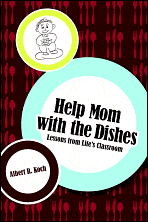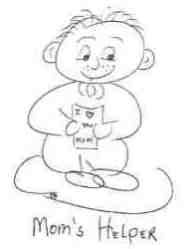As children, we learn our ABC’s and readily sing the alphabet song on cue. At such a young age we treat the learning of the alphabet as a novelty and do not realize the importance or power of the letters we voice. Later on, as we add the ability to read and write to our inventory of skills, we begin to understand the value and significance of our ability to convey and decode the symbols of our language. As our communication improves we realize several factors are interrelated and interconnected which add to the effectiveness of words: volume, body language, vocal expression, word choice, and emotional mindset. It does not take long for human beings to capture the essence of language and the meaning of spoken words. Using sight and sound we interpret, catalogue, react, and respond to information delivered to us. Language is essential to meet daily basic needs.
In school, we spend the first three years of school learning how to read; from fourth grade on, we use reading to learn. In the United State of America the language is English. No other language offers such a choice or range of vocabulary, meanings, interpretation, versatility, application, inventiveness, adaptation, and changeableness. English is truly a living language. Each year, new words are added to the lexicon. Familiar terms are given added definition; Parts of Speech are reassigned to meet public usage, as we continually remodel the forty-two sounds of our alphabet, making them suitable to meet contemporary need and modern living. When I was a kid the word “party” was a noun: “I’m going to a party.” Today, it has become a verb: “Let’s party!”
Years ago, having a mouse in your house was met with panic and baited traps. Today, most desktop computers come with a “mouse” and it is handled with care and given its own pad. The list of such modifications is mind-boggling.
How powerful are words? Next to heartbeats and breathing, words are what give human beings life. In 1957, as a junior at Whiting High School struggling with English, my teacher, Mr. Ulrich, gave me a packet of alphabet cards. “What this?” I asked, “I know the alphabet.” He then taught me the greatest lesson about English. “If you learn to select the right letters, for the right words, at the right time, the world is yours” In a very succinct manner, Mr. Ulrich explained the power of words. Thank what words can do: they can make one happy, sad, cry, smile, laugh, joyful, disappointed, excited, anxious, pleased, and proud. Words can convey appreciation, value, importance, success, failure, accomplishment, recognition, praise, emotion, regret, struggle, trust, honor, affection and respect.
How many times have feelings been hurt because of unkind words? How often have we felt embarrassed, ashamed, rejected or lonely because of hurtful language? Regardless whether such words are written or spoken, the impact is profound.
In contrast, recall the exhilarating feeling when one is the recipient of caring, loving words; recognition for accomplishment, achievement, special occasions or appreciation of friendship. Conveyed electronically or delivered by mail; on fancy stationery, notebook paper, or in person—the heart swell with delicious feelings of goodness, appreciation, thoughtfulness, and love.
Of all the powerful words there are special, vitally important words that define us. As humans we are flawed and prone to make mistakes: most of the time these mistakes are minor, insignificant in nature that does not affect daily life. These periodic miscues are part of growing up, learning experiences, and general interaction with environment and people. Occasionally, however, we commit mistakes that cause pain, suffering, anxiety, stress, and long-lasting consequence. Whether unintentional or on purpose, by commission or omission, we know there is never an excuse not to be kind. Even so, we sometimes say and do unkind things. Once offensive words are conveyed—they remain. You cannot put toothpaste back in the tube. What, then, does one do to heal the wound of unkindness?
We have to make choices in the way we use words? We can use them for criticism, contempt, defensiveness, selfishness and meanness. The tongue and pen can be used to praise or curse, hate or cherish, despise or admire. But if we believe that communication—the power of words—serves to strengthen relationships and provide ways to reshape all persons for the better, we must willingly bestow the gift of forgiveness—to others and ourselves. For with forgiveness, there is love; and love enables us to see with our heart. Such is the power of words.
Subscribe to:
Post Comments (Atom)
Where's Al going to be next???
Check back soon for his next appearance at a location near you!


No comments:
Post a Comment